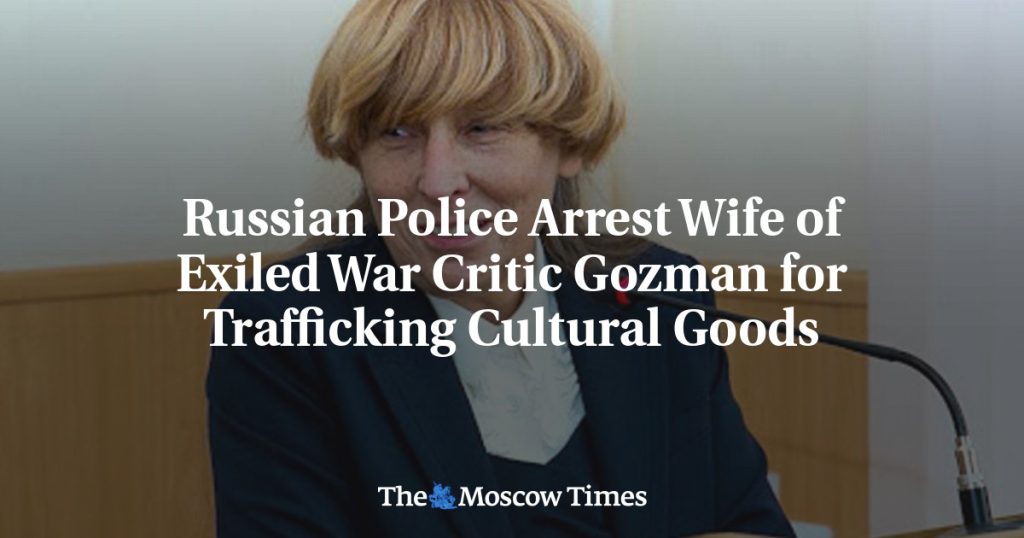Russian law enforcement authorities have placed the wife of opposition figure Leonid Gozman under house arrest on allegations of trafficking cultural goods from Russia to Italy. The goods listed include kitchen and household utensils inherited by the Gozman family and seized by Russian border guards. Marina Yegorova, 72, faces up to seven years in prison if found guilty of trafficking as part of an organized criminal group. A Moscow court ruled on Oct. 4 to place her under house arrest, and the ruling entered into force on Oct. 8.
Leonid Gozman, 73, has not commented on his wife’s case but announced the suspension of his political and media activities due to personal circumstances. The independent newspaper Novaya Gazeta claims that Gozman made this decision because his wife was taken hostage in Russia. The court sentenced Gozman to eight and a half years in prison in absentia for criticizing Russia’s invasion of Ukraine. He was also labeled a “foreign agent” in 2022 and detained for allegedly failing to inform the authorities about his dual Russian-Israeli citizenship.
The court indictment lists Gozman, Yegorova, and the driver who brought her to the Russian border crossing as members of the organized criminal group involved in trafficking cultural goods. Gozman had a home in Italy and left Russia in September 2022. Recently, he has faced legal troubles in Russia, which have affected his ability to engage in political and media activities. He has been vocal in his criticism of Russia’s actions in Ukraine, leading to charges and accusations against him.
The charges against Gozman follow a pattern of targeting opposition figures and critics of the Russian government. The crackdown on independent media and dissenting voices has intensified in recent years, with many journalists and activists facing legal challenges and harassment. Gozman’s case is just one example of the challenges faced by those who speak out against the Russian government’s actions. The house arrest of Yegorova, Gozman’s wife, is seen as a tactic to exert pressure on him and limit his activities further.
The situation highlights the risks faced by those who oppose the Russian government and the lengths to which the authorities will go to silence dissent. The labeling of Gozman as a “foreign agent” and the subsequent legal action against him demonstrate the government’s intolerance of criticism and opposition. The ongoing persecution of Gozman and his wife reflects a broader crackdown on independent voices in Russia and raises concerns about freedom of speech and expression in the country. As the situation continues to unfold, it underscores the challenges faced by those who choose to speak out against the Russian government’s actions.


